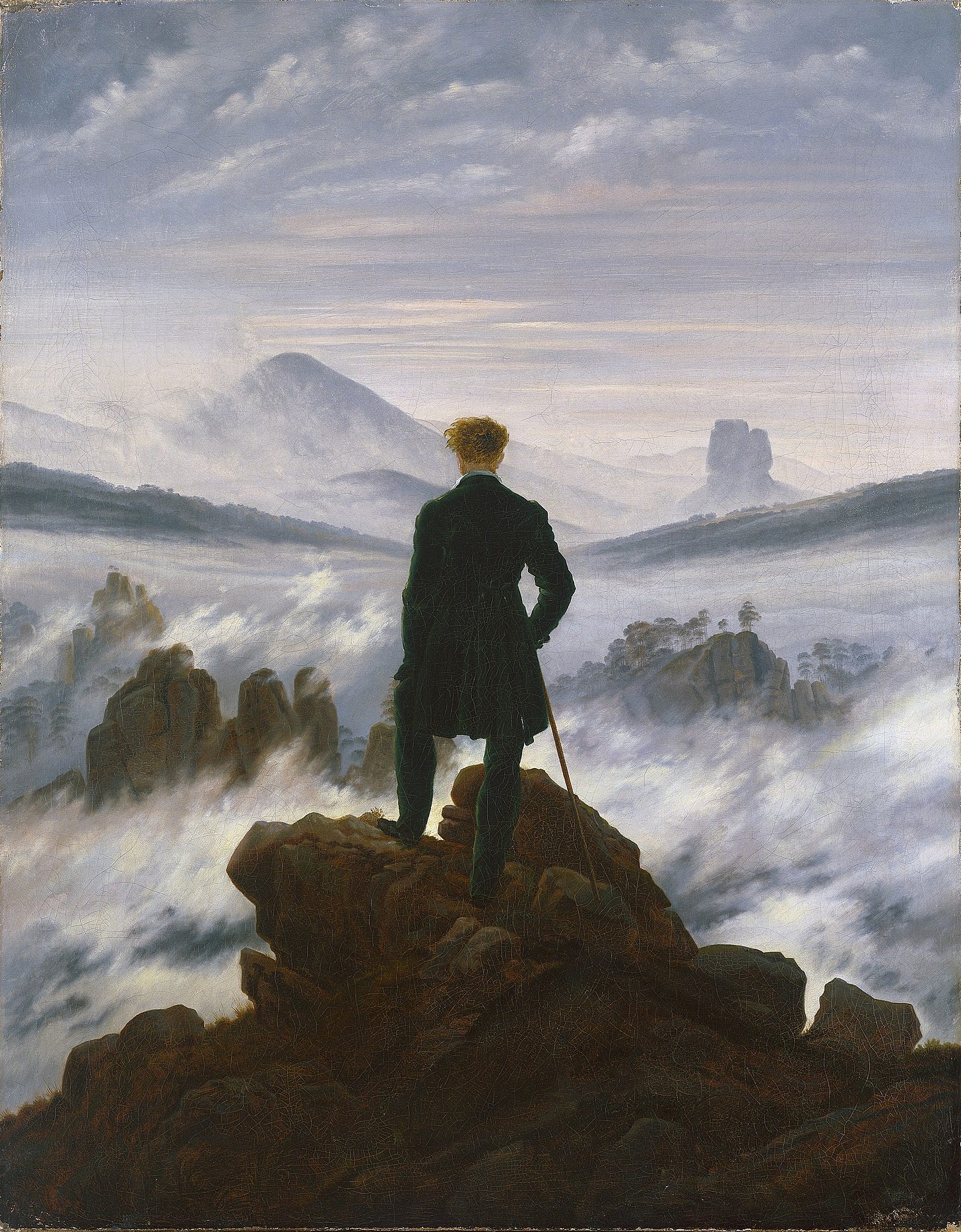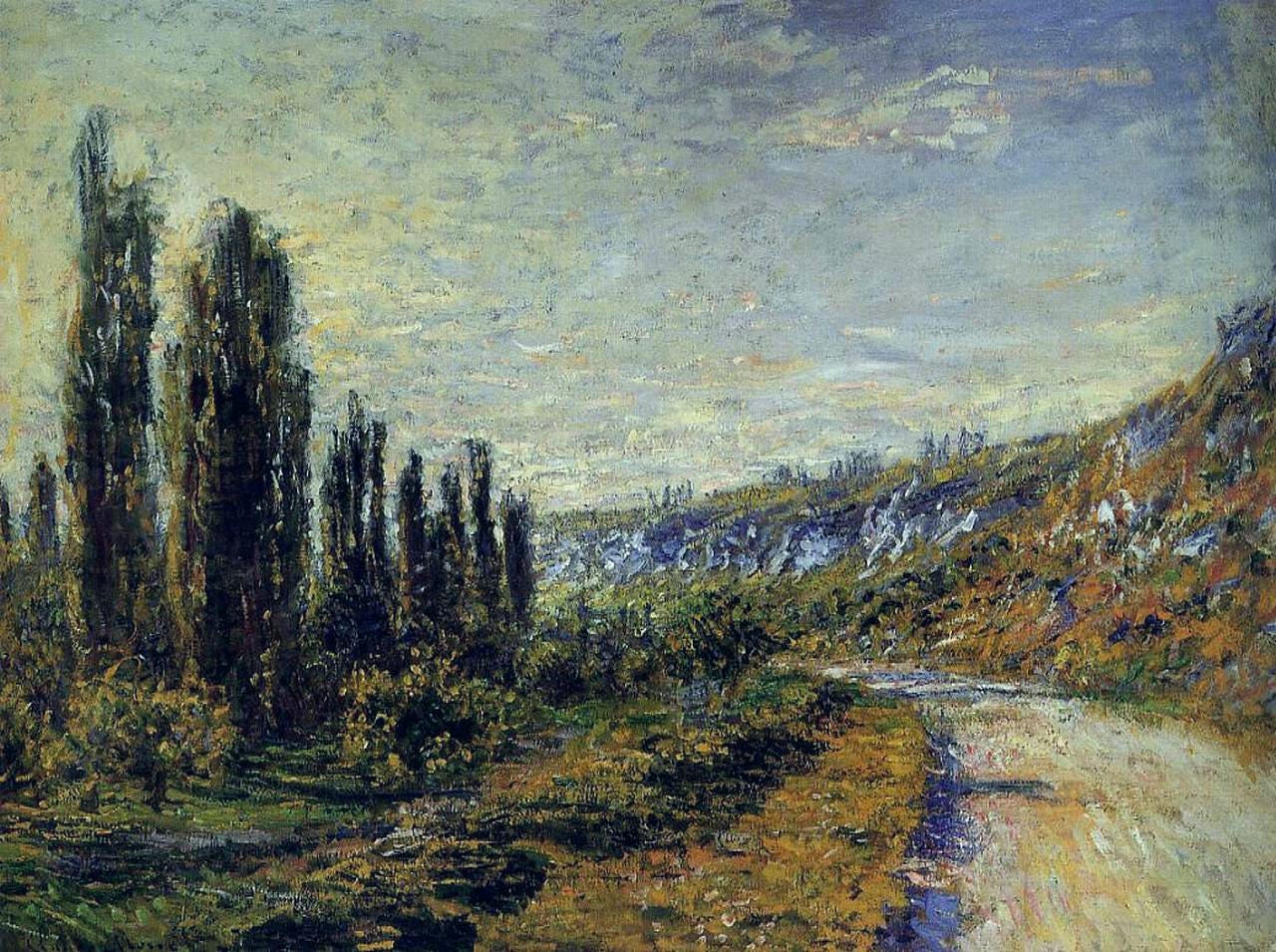A Prologue to Oxford English
How my year off before university helped to change the direction of my life

In my post on studying law last year, I promised – or threatened – to tell the story of how I changed my course of study at university to English. That post is in preparation, but this week's essay is a bridge between the two pieces and a kind of prologue to the one I will shortly publish.
I’ve mentioned before that you don’t graduate from secondary school (high school) in England — you just leave when you’ve finished your final public exams.
It’s a bit like Paul Simon’s Fifty Ways To Leave Your Lover: “You just slip out the back, Jack.”
In fact, there was a chance to say goodbye at an end-of-year ceremony where annual prizes were handed out. But all I remember of that was a seasoned, senior teacher telling me she always worried about those students that gravitated back to the school after leaving, as if gripped by some kind of unhealthy attachment to that period of their lives. I don’t know why she told me this, but there was never much chance of that happening in my case. I couldn’t wait to leave the place and never went back.
The school catered to all academic abilities and proclivities. Many of my peers went straight into work in banks, on farms, as hairdressers. My mother had left school at 15 to become a shop assistant, and my father left school at 16 to become a farm worker (or “herdsman”, according to the wedding certificate issued when my parents got married three years later). But my government-funded school, which had been shaped by the post-war ethos of social mobility and respect for learning that appears almost quaint now, had prepared me for other things. I was heading to university.
But not quite yet.
I was taking a year off — a “gap year”, which was becoming a popular practice in those days. So while some of my similarly academic schoolmates were busy packing large suitcases or second-hand trunks from charity shops where they could stuff all the clothes and possessions to take to university, I was moving to the seaside town my family had recently decamped to.
Because even while my own future was temporarily on hold, this was a period of abrupt transition and huge activity for my family. My eldest two brothers had just taken over a seaside hotel, a bold venture after quitting steady jobs. My father had (temporarily) left farming and invested in property.
So that autumn, as my peers unpacked their belongings in unfamiliar accommodation in university towns and cities across England, any of which would seem like a huge metropolis after our tiny provincial outpost, I found myself in a life of manual labour, standing many hours in front of a shiny dishwasher. Here I often battled to remove the dogged egg stains from a hundred breakfast plates in my brothers’ newly acquired hotel.
As the autumn progressed, and my former classmates grappled with particle physics, pondered the mysteries of Van der Waals forces or plotted the distribution of terminal moraine (as they made sure to tell me in their letters), I found myself in a ramshackle building my father had bought. And in my own classroom I was learning how to sand wooden surfaces before applying undercoats of “primer” or paint and becoming acquainted with the art of stripping wallpaper from ancient walls.
That’s how, from the winter of 1980 through into the spring of 1981, I came to live in a ruined Victorian building which, according to rumour, had been built by Edward the Prince Regent for his lover Lilly Langtry (I have never found a shred of evidence to support that tale). In those former halls of rampant privilege, I applied myself to the practicalities of life. I battled with stubborn wall coverings that had probably seen service since Virginia Woolf was a child, and I clumsily applied thick top coats of paint which formed droplets that then clung to the window frames like a sullen curse. I remember that I was painting a door frame chocolate brown when I heard that John Lennon had been murdered.
The house was huge, with a hallway that, in its prime, would have hosted with ease a party of 100 with a string quartet playing and a staircase from which an elegant lady of the house could have made a dramatic entrance in a fine gown, sweeping down to greet her guests. But the place was now full of mould and must; the roof leaked, and none of the plumbing worked.
One room that gave onto a small clump of trees on the hillside became a trophy room for my mother’s cat. Brought up on a farm and a fearless hunter, it began to catch the local squirrels at an alarming rate. I only realised this when I stumbled into the room while exploring one day and found about 20 bushy grey tails scattered over the floor: the trophies.
To add to the house’s legend, it produced unexplained noises at night and possessed a strange aura. I think I slept ok at the time but felt uneasy making my way through its looming halls in the dark, especially at the back of the house on the ground floor. And there was one room I’d never enter after nightfall. For years afterwards, I’d have recurring nightmares of the place as filled with a nameless evil that would be worthy of an Edgar Allan Poe story. Perhaps I’d read too many horror stories as a child.
Despite the house’s ruinous state, its solid foundations and majestic cliff-top situation gave it potential; my father, optimistic yet astute, converted it into small flats for a while before selling it. He would make money on the deal.
Between my father’s ramshackle investment and my brothers’ hotel, I found a few means of escape. Where there once might have been servants’ quarters, I placed a chair and desk and looked out of the large window of a bare room. From it, I could see the dark glistening of a road snaking over the brow of the hill. As it later turned out, this road led to a secluded headland where my father would eventually buy his next farm.

I would also sit for days at a time in the backyard of my brothers’ holiday hotel. At the end of each day, I saw my hands, black from the strips of tyres that we used to secure the bottom of the crab pots we were making for my father’s fishing boat. (This would be a less successful venture.)
It was then that the shipping forecast became essential listening in our family home, just as the weather forecast for farms had been in my childhood. Weather for farmers like my father was a matter of livelihood, the difference between success or failure. For the fishers, it was a matter of life or death.

But I was landlocked, and instead of setting off to sea, I’d drift off into late-afternoon reveries as darkness fell while listening to BBC Radio 4 broadcast readings of classic novels or performances of new plays.
And then, of course, in the evenings I read. I’d taken a gap year partly because I wasn’t sure I was ready for the rigours of university. And I’d accepted uncomprehendingly the wisdom of some of my teachers who’d suggested it, to give myself a period to find out what I really wanted to do. With the dust of Edwardian furnishings in my eyes, specks of brown paint in my hair and my hands shredded by the crab pot making, I was at least finding out that a life of practical work probably wasn’t what I wanted.
But the reading, in between making peace with my calloused hands and wrestling crab pots, seemed to be pointing somewhere.
By day I applied myself to manual labour diligently enough, but at night I entered different worlds through the books of George Orwell, Virginia Woolf, James Joyce, Jean-Paul Sartre (of course!), Italo Calvino, Muriel Spark, Graham Greene, and Sam Beckett, among many others.
The Road to Wigan Pier, The Voyage Out, Journeys without Maps, The Baron in the Trees, The Roads to Freedom.
Looking back, I see that even some of the titles of the books I was devouring were intent on setting me in motion. But in which direction?
I’d been accepted to read law at university, and as the following autumn approached, I was increasingly restless to start my new life in that famous university town. Law was my passport to that place, and I still trusted in it as my route away from small-town life.
But other possible futures were beginning to take shape without me realising it.
“The study of law sharpens the mind by narrowing it,” Edmund Burke once said. However, the narrowing of the mind into the utility and prosperity of the law was just one way forward and increasingly not the most attractive. My mind was perhaps changing direction just as the local winds would change at the approach of another Atlantic depression. And my thoughts were slowly taking new shape, like the old wreck of the building I was helping my father to renovate.
In my beginning is my end. In succession
Houses rise and fall, crumble, are extended,
Are removed, destroyed, restored...
I’d read these lines from TS Eliot’s East Coker (part of his Four Quartets) at school, where I’d failed to distinguish myself in literature classes. Did this ruin of a building hold any clues to my future?
The old mansion had many rooms that looked out to the south, east and west. But the room where I’d placed my rough chair and desk and sat looking out towards the southeast in all weather was the one that drew me back most.
Sitting there, under the ceiling stained with leaking rainwater and surrounded by stripped and yet-to-be-repainted walls, I’d stare in the evening at that shallow hill across the bay directly to the south with its road that meandered out of sight. I began to fancy it was a road leading to a future as open as the horizon. And perhaps some part of me in an inner room of my mind, still hidden from my conscious thoughts, began to sense it would be Mrs Dalloway and Jacob’s Room that would get me there, rather than the All England Law Reports of 1937.








Beautifully written! You made tedious physical labor and harsh living condition as poetical as the quaint English town that only lives in my imagination.
This prologue already reads like a small Bildungsroman in the making. I'm hooked!